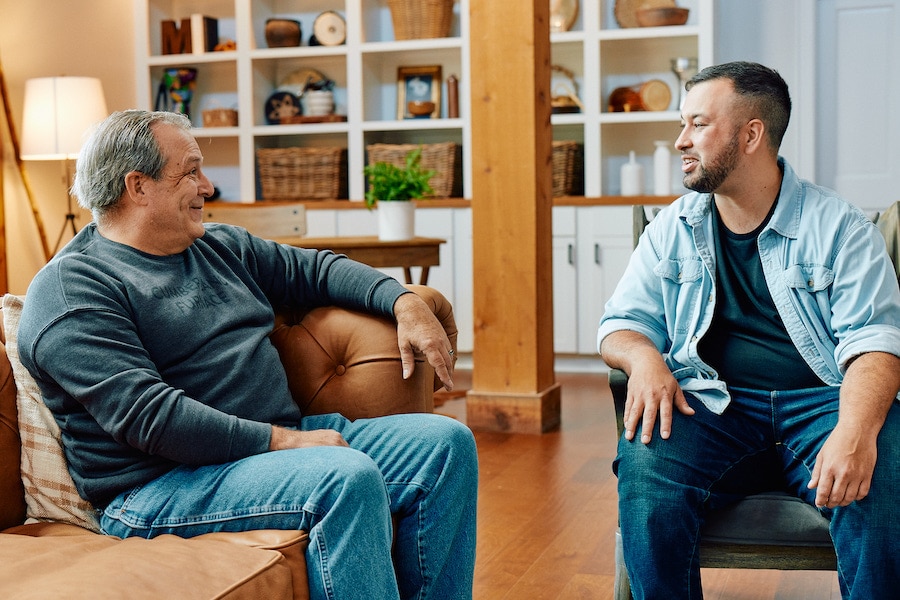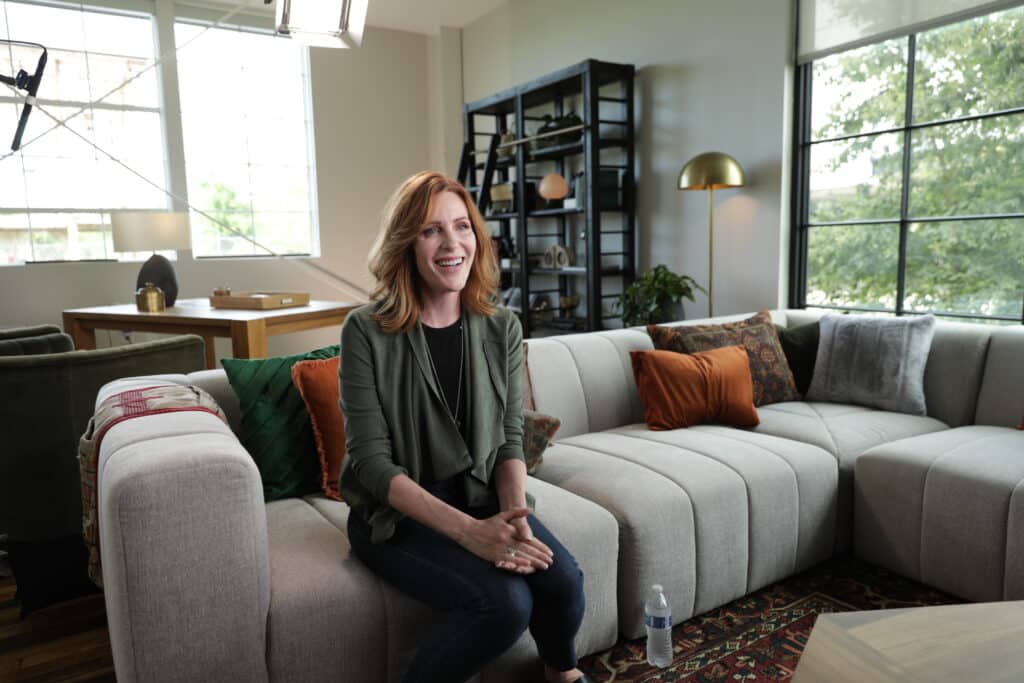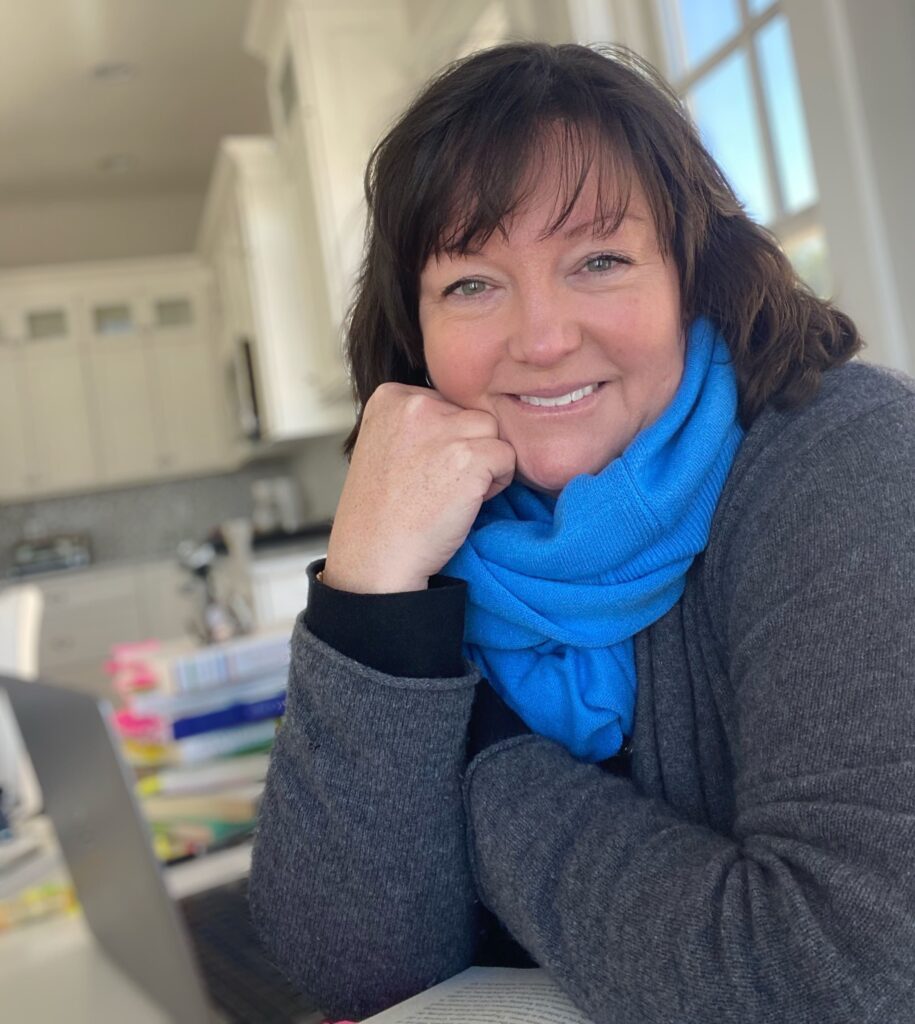Is Residential Treatment Right For Me?
When addressing your emotional and mental health, there are many offerings, resources, and interventions that might be a good fit for you. So much so that it can feel overwhelming to determine which to choose.
A vital part of the work we do at Milestones is ensuring that every person who connects with us finds the next step in their healing journey. We want to meet people where they are and help them find the right experience for their unique needs at the right time.
Simply put, the right treatment at the wrong time is the wrong treatment.
Milestones offers a one-of-a-kind residential trauma experience.
Recently on the Treating Trauma Podcast, cohosts Mickenzie Vought and Christopher O’Reilly sat down with Admission Director Shannon Yates and Clinical Supervisor Amanda Morrow to explore how the team helps people assess if Milestone’s residential experience is right for them.
What is Residential Treatment?
Residential treatment centers provide treatment for various issues and are clinically focused, intensive, live-in facilities where trained staff continually monitor and supervise clients.
Unlike outpatient therapy, residential treatment offers an extended time of healing and exploration in a home-like setting.
What Makes Milestones Different?
At Milestones, we know that healing and recovery are possible. Therefore, we focus on providing trauma-informed treatment, which begins by curating a safe container of support that lets clients entirely focus on the experiences, beliefs, losses, and wounds creating painful symptoms and unhealthy patterns.
With only 20 clients at a time, the Milestones experience allows for highly individualized treatment for trauma and its impact. We focus on helping people to develop a sacred respect for what they have experienced and help them acknowledge the truth about the resiliency and strengths which have allowed them to survive.
We offer various clinical modalities tailored to each person’s unique needs. Our clinicians are well versed and skilled in multiple cutting-edge treatment approaches based on research developments that have shed new light and understanding into how trauma impacts us and what treatment approaches are most effective.
Programming is structured and individualized yet flexible, allowing us to accommodate each client’s unique opportunities, goals, and needs.
3 Questions to Determine If Residential Treatment Might be The Next Right Step For You
1. Are you experiencing external or internal unmanageability in your daily life?
When asked the number one thing that might make someone a good fit for a residential stay at Milestones, Amanda Morrow spoke about the unmanageability that our clients often face.
Many of people think their lives need to completely go off track to warrant considering a longer-stay option for treating their anxiety, depression, PTSD, unhealthy attachments and behaviors, or any other adverse effect of trauma. Some of the best candidates for residential care are those that are highly functioning in several areas of their lives and floundering in others. Perhaps they are showing up to work and advancing in their careers but are coping with crippling anxiety through unhealthy coping behaviors. Others might be incredible parents who cannot manage the demands of daily life and withdraw from all other relationships.
When life feels too big, internally or externally, it might be time to consider a greater level of care and space.
“Unmanageability can show itself in external ways like being unable to keep a job, not being able to hold a relationship, or simple ways like our house and car being in disarray. But there’s also this idea of internal unmanageability. It’s all these things that are happening inside of us. The deep-seated feelings that we are not equipped to deal with. It is overrunning us; honestly, the world has a lot of distractions to offer. And sometimes those distractions are so loud that they don’t even allow us to sit with the unmanageability that’s happening inside of us.” – Amanda Morrow
2. Do I need more than an hour a week to stay in an extended period of exploration to get to deeper issues I’m facing?
A key indicator that residential might be a good fit for your situation might be that you cannot get to the roots of your issues in an inpatient, weekly session. Often the adverse impacts of our past can create daily problems that are managed and addressed in outpatient care but can get in the way of a deeper level of introspection, healing, and exploration.
“Many clients at Milestones see an individual outpatient therapist, but it can feel like crisis management. Instead of the deep dives they require, they are constantly just maintaining and putting out fires.” – Amanda Morrow
Milestones curates an environment in which you can stay in extended periods of healing, where the individualized programming facilitates the opportunity for rest, exploration, and more without the need to lift out to go back to your “everyday life.” It can be hard to address deep-rooted pain and trauma when you leave a session, make dinner, and run errands. Residential care allows space to process and heal at your speed.
3. Can I step away from my life in this season to do this vital work?
It can be challenging to entertain the idea of lifting out of your everyday life for 30-90 days. Many people ask, can I afford to do that in my life right now? Often the question might be, can you afford not to? What is at stake if you don’t? What would could the sacrifices be worth?
While residential is not always a fit, more often than not, taking 30-90 days to focus on your healing pays unimaginable dividends in every area of your life. Creating the margin, asking for support, and rearranging your life might require effort, but clients often find it’s easier than they think.
Our team is adept at helping you determine the steps required to take on the work ahead and work through the necessary logistics.
“30 days is a long time. That’s quite a bit of time to put aside. I talk to clients on the front end who are nervous and do everything I can to make it more manageable for them. I might help them get paperwork filled out for work, or put in a request of leave, talk with family members, help brainstorm childcare, whatever it takes to make it a reality.” – Shannon Yates
If you or someone you love is struggling to determine the next right step in their journey, our Admissions Team would love to connect on a confidential call at 1-800-341-7432.
Listen to the full Treating Trauma Podcast Episode – How Would I Know If Residential Treatment is Right for Me?














